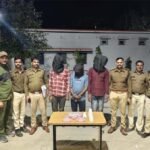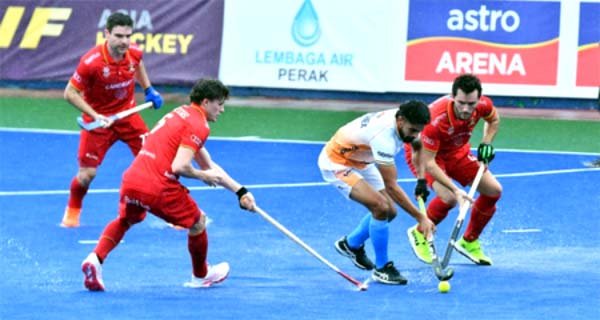New Delhi, Oct 9 (UNI) The Supreme Court today permitted Ashish Mishra, son of former union minister Ajay Mishra and an accused in the 2021 Lakhimpur Kheri violence case, to visit his hometown on October 20 to celebrate Diwali with his family.
A Bench comprising Justice Surya Kant and Justice Joymalya Bagchi directed that the earlier condition barring political workers or members of the public from participating in the celebrations will continue to apply.
During the hearing, senior advocate Siddharth Dave, appearing for Mishra, sought permission for his client to travel to Lakhimpur and assured the Court that he would return by October 22.
The Bench allowed the request, reiterating that Mishra must abide by all bail conditions.
The Court also took note of the status of the trial, observing that 23 witnesses have been examined while nine have been dropped. It directed the Uttar Pradesh Police to file a status report on the ongoing investigation.
Advocate Prashant Bhushan, representing some of the victims, urged the Court to expedite the trial. However, the Bench declined, noting that doing so would amount to monitoring the trial.
This is not the first time Mishra has been allowed a temporary visit to Lakhimpur. Earlier, on March 24, the Supreme Court had permitted him to visit his family on the occasion of Ram Navami.
The apex court had granted bail to Mishra on July 22 last year, restricting his movement to Delhi and Lucknow and barring him from entering Lakhimpur Kheri district while the trial is pending.
On October 3, 2021, eight people, including four farmers were killed in Tikunia, Lakhimpur Kheri, during a farmers’ protest against the visit of Uttar Pradesh Deputy Chief Minister Keshav Prasad Maurya.
A vehicle allegedly driven by Mishra’s convoy ran over the farmers, after which a driver and two BJP workers were lynched by enraged protesters. A journalist also lost his life in the incident.
In December 2023, the trial court framed charges against Mishra and 12 others for murder, criminal conspiracy, and related offences, paving the way for the commencement of the trial.











